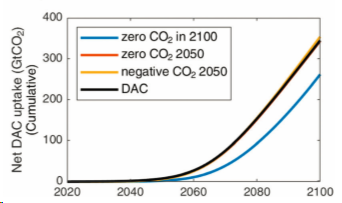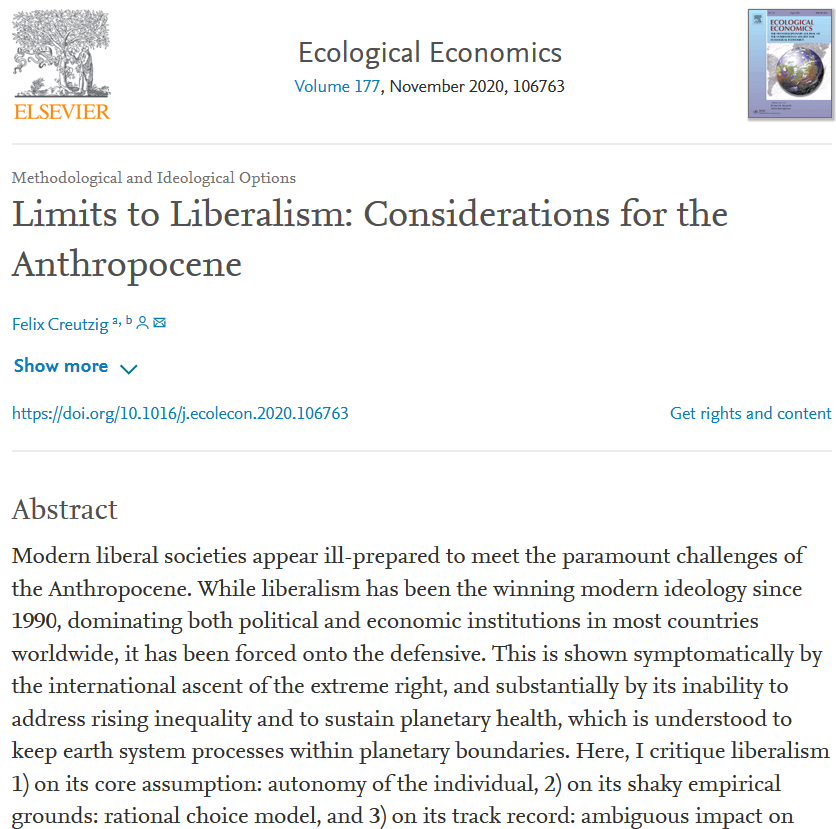
Thread.
1/8 Negative Emission Technologies & Energy System Strongly Entangled - new study with @ChristianOnRE, J. Hilaire & J. Minx @MCC_Berlin, @Peters_Glen and Rob Socolow, published in Energy & Env. Sciences.
@CarbonBrief @klimareport @IPCC_CH @drvox @pepcanadell @clequere


1/8 Negative Emission Technologies & Energy System Strongly Entangled - new study with @ChristianOnRE, J. Hilaire & J. Minx @MCC_Berlin, @Peters_Glen and Rob Socolow, published in Energy & Env. Sciences.
@CarbonBrief @klimareport @IPCC_CH @drvox @pepcanadell @clequere



2/8 Scenarios suggest that DACCS could consume nearly 60% of all non-electric energy in 2100, and BECCS produce nearly 30%. 

3/8 But land demand for BECCS could be huge, as large as Europe, making its provision hardly compatible with biodiversity and ecosystem protection. DACCS would require land equivalent to the size of Ireland - that is lot, but plausible, as the land does not need to be fertile. 

4/8 Thermodynamically, DACCS may be better than BECCS: It requires less primary energy per Gt CO2 sequestered. 

5/8 If the energy system decarbonizates only slowly, then the 'sequestration efficiency' of DACCS may be qualified (blue line in graph below). [Thanks to Rob Socolow for insinsting on this part]. It is hence doubly important to transition quickly to renewables, phase out coal. 

6/8 Costs developments depend on several dimensions. Note that the lack of reliability in life-cycle emissions of BECCS could scare of investments that seek undisputed returns, not ambiguity. 

7/8 Cost trajectories? BECCS could maintain its affordability edge land issues could be controlled, e.g. with very high yields. DACCS would need a continued steep innovation curve to make a difference. 



8/8 Key questions for further research: Is there scope for autonomous NET systems? Costs for electricity will be key in any case. 

• • •
Missing some Tweet in this thread? You can try to
force a refresh




